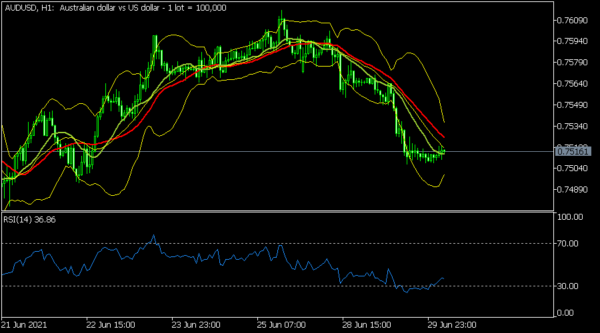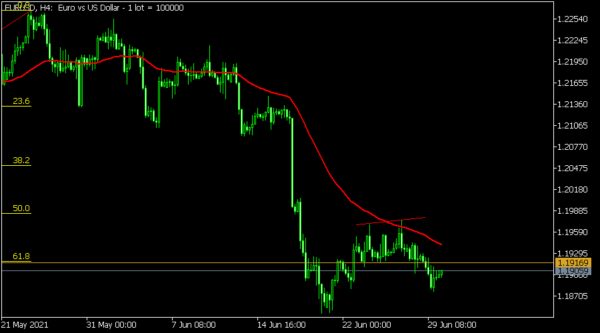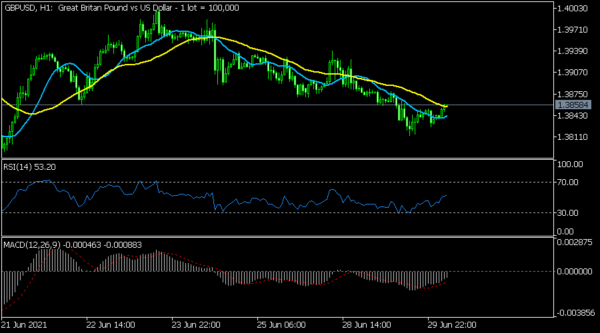The Japanese yen strengthened slightly against the US dollar after the latest industrial production data from the country. According to the statistics office. Industrial production declined by 5.9% in May after rising by 2.9% in April. This decline was deeper than the median estimate of 2.4%. The statistics agency estimates that production will rise by 9.1% in June and then decline by 1.4% in July. June. The data came a day after the country released weak retail sales numbers. The data send a signal that the country will have a slower recovery than other developed countries even after receiving an Olympics boost.
The Australian dollar declined slightly in early trading even after relatively positive numbers from Australia and China. The Reserve Bank of Australia (RBA) data showed that housing credit increased from 0.5% in April to 0.6% in May. Further, the private sector credit increased from 0.2% to 0.4%. Elsewhere, in China, data showed that the manufacturing PMI declined from 51.0 in May to 50.9 in June. This decline was better than the median estimate of 50.8. The non-manufacturing PMI declined from 55.2 to 53.5 while the composite PMI fell to 52.9. These numbers show that business activity in the country is still doing well.
The US economy is doing well as evidenced by the latest housing prices. The Case-Shiller national home price index rose by 14.6% in April after rising by 13.3% in May. This was the biggest increase in more than 30 years as the housing market tightens. This happened as the Conference Board’s consumer confidence figure rose in June. Similarly, in the UK, data showed that house prices rose at the fastest pace since 2014. Later today, the UK will publish the GDP estimate for the first quarter while the German statistics agency will release the latest employment numbers. Other numbers to watch today are the Canadian GDP, US pending home sales, and US crude oil inventories.
AUDUSD
The AUDUSD pair declined to 0.7500 in early trading. On the hourly chart, the pair moved below the 25-day and 15-day exponential moving averages (EMA) while the Relative Strength Index (RSI) has moved to the oversold level of 30. The pair is also forming an inverted cup and handle pattern. It is also along the middle line of the Bollinger Bands pattern. Therefore, the pair may keep falling as bears target the next key support at 0.7477.
EURUSD
The EURUSD pair was little changed on Wednesday morning ahead of the latest Eurozone inflation data. It is trading at 1.1906, which is slightly above yesterday’s low at 1.1877. On the four-hour chart, it is below the neckline of the double-top pattern at 1.1915 and is slightly below the 61.8% Fibonacci retracement level. The pair has also moved below the 25-day moving average and the dots of the Parabolic SAR indicator. Therefore, it will likely keep falling as bears target the next support at 1.1850.
GBPUSD
The GBPUSD pair rose slightly to 1.3857 above yesterday’s low of 1.3813. On the hourly chart, the pair has moved above the 25-day and 15-day moving average. The Relative Strength Index (RSI) has moved from 30 to 52. The signal and histogram of the MACD have moved below the neutral level. The pair will likely keep rising as bulls target the next key resistance at 1.3900.



